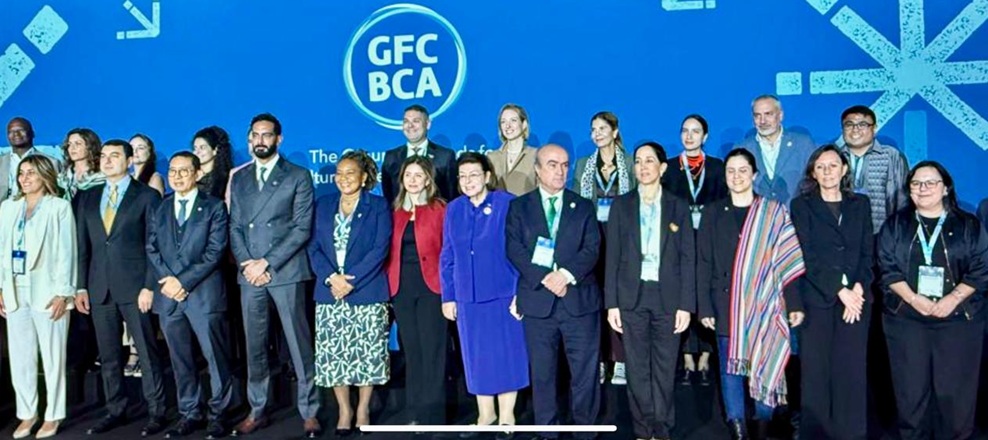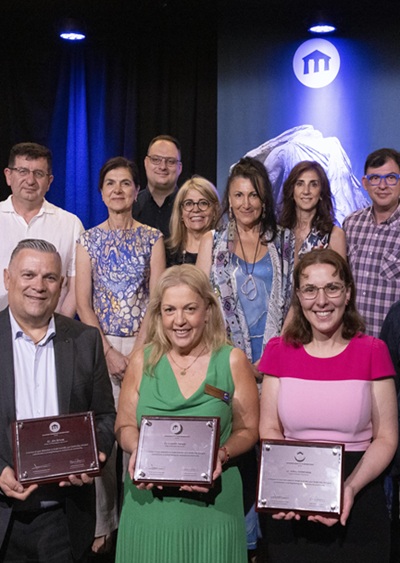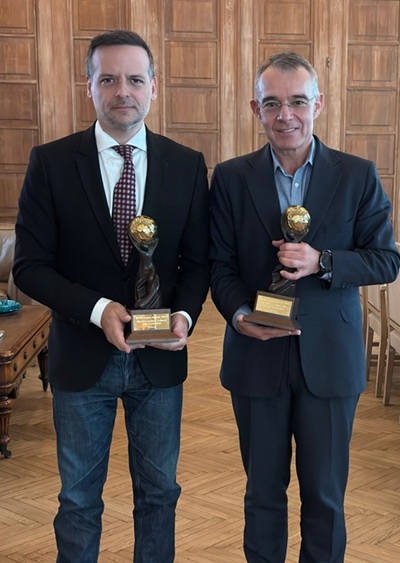
”Climate change is one of the most urgent and complex challenges of our time. Its effects go way beyond the environmental and economic context. They touch the cultural, social, and moral fabric of our societies. If we fail to act, we risk not only ecosystems and livelihoods, but also our cultural heritage, traditions, and identities that hold our communities together,” said Minister of Culture Lina Mendoni at the 3rd Ministerial Meeting of the Global Climate Action Alliance for Culture (GFCBCA), which took place on the sidelines of UNESCO’s MONDIACULT Conference in Barcelona on September 28.
It is an informal alliance of more than 70 countries, international organizations (UNESCO, ICCROM, ICOM, ICOMOS), and representatives of civil society, with the aim of protecting cultural heritage from climate change. The Alliance was established at COP28 in Dubai in 2023. The 3rd Ministerial Meeting paved the way for COP30, which is scheduled to take place in November in Belém, Brazil, by adopting the Barcelona Declaration.
In her speech, Lina Mendoni stressed that “culture is an essential and indispensable pillar of the global response to the climate crisis.” She outlined the key points of the “Greek National Action Plan for the Protection of Cultural Heritage from the Effects of Climate Change,” which is being finalized by the Ministry of Culture by the end of the year. He advocated the need to activate tools, not only at the national level, but mainly at the supranational level, in order to strengthen cooperation with mechanisms for reducing the risk of destruction of cultural goods, both tangible and intangible.
The Minister of Culture emphasized “the need to integrate culture and cultural heritage into the National Climate Change Adaptation Plans of Member States, as well as into the Just Transition Strategy, while calling on Alliance members to adopt the cultural heritage indicators prepared under the United Nations Global Goal for Adaptation, as their use makes it possible to measure the progress of National Plans for adapting cultural heritage to climate change.” He noted the need to reduce the carbon footprint of the cultural and creative sector through green transition. Finally, he referred to Greece’s international initiatives for regional coordination on climate change and stressed that Greece is ready to share its experience and expertise.
The Barcelona Declaration confirmed that culture and cultural heritage are both a sector vulnerable to the effects of climate change, but also a powerful force for resilience, public awareness, and transformation towards a sustainable development model that supports local communities. Among other things, Alliance members are encouraged to integrate cultural heritage, the arts, creative industries, their intangible cultural heritage, and traditional knowledge into national strategies for climate change mitigation and adaptation. They are also encouraged to develop adaptation plans to protect intangible and tangible cultural heritage, as well as to support the COP30 Action Agenda, in particular Goal 19 “Culture, Cultural Heritage and Climate Action.”







Leave A Comment